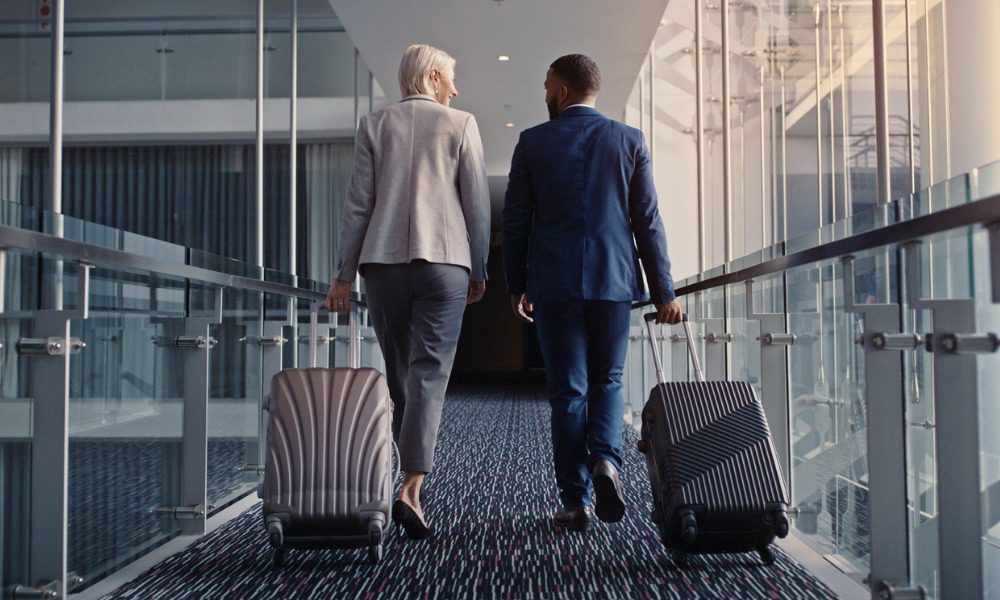Survey highlights business travel’s mental health impact on Australians

Survey highlights business travel’s mental health impact on Australians | Insurance Business Australia
Travel
Survey highlights business travel’s mental health impact on Australians
Lack of employer support highlighted
Travel
By
Roxanne Libatique
Travel risk management provider World Travel Protection has released a survey examining the mental health effects of business travel on Australians.
Conducted by Opinium, the survey interviewed 500 Australian business travellers and found that while half of respondents saw a positive impact on their mental health, 47% felt that frequent travel increased their stress and burnout levels. The percentage rose to 56% among those who travel at least every two months.
Impact of travel on Australians’ mental health
The survey revealed that the mental toll is particularly high for those who frequently travel for work. Around 27% of participants have sought mental health support due to travel-related challenges, rising to 36% for those traveling at least every two months.
Homesickness or missing family was the most commonly reported emotion at 38%, followed by exhaustion (37%), anxiety (34%), stress (32%), and loneliness (26%). Women were more likely to experience these emotions compared to men.
Importance of employers supporting employees’ wellbeing during travel
Dr Neil Slabbert, regional chief medical officer (Asia Pacific) at World Travel Protection, emphasised the importance of employers supporting their employees’ wellbeing during travel.
“Organisations have an obligation to ensure their employees feel supported when they’re away from home and their loved ones, both from a physical safety and mental health perspective. The outcome not only ensures employee wellbeing but also maximises the benefits of business travel for both staff and the company,” he said.
Despite these challenges, nearly three-quarters (73%) of Australian business travellers believe that in-person meetings are essential for long-term business relationships, and 47% feel that business travel has become more important since remote work became widespread.
However, support from organisations is often lacking. More than a third (35%) felt that their employers do not prioritise their wellbeing when they travel, while about half (48%) expressed concern about conditions like anxiety, depression, and panic attacks. For younger travellers aged 18 to 34, this concern rises to 58%. Furthermore, only 26% of travellers receive comprehensive destination briefings before or during travel.
Slabbert emphasised the importance of proactive planning and travel risk management services to help ease these challenges.
“Having peace of mind about your safety when abroad can play a big part in how confident you feel when you’re working. Travel risk management companies support corporate travellers by providing pre-trip medical and country intelligence, which sets expectations before the trip. Being proactive is something that supports travellers’ wellbeing,” he said. “Other initiatives include supporting daily family or next-of-kin video calls, downloading a wellness or meditation app to their phone, and having a solid action plan in case of an emergency. Employees should also have contact details on hand of their travel assistance company should they require urgent care.”
More Australians combine business and leisure travel
The survey also highlighted the growing trend of combining business and leisure travel, known as “bleisure.”
Nearly 28% of respondents said that adding leisure time into their business travel schedule reduced their stress and burnout, and 27% noted they would be more loyal to an employer that offered this flexibility.
Psychologist Patrea O’Donoghue observed that combining business with leisure provides opportunities to decompress and recharge, ultimately enhancing productivity.
“Whether it’s exploring local cuisine, enjoying quiet moments, or engaging in conversations with locals, these experiences enrich your journey and foster a deeper connection to the present moment, especially when you’re feeling overwhelmed or homesick,” she said.
Related Stories
Keep up with the latest news and events
Join our mailing list, it’s free!






